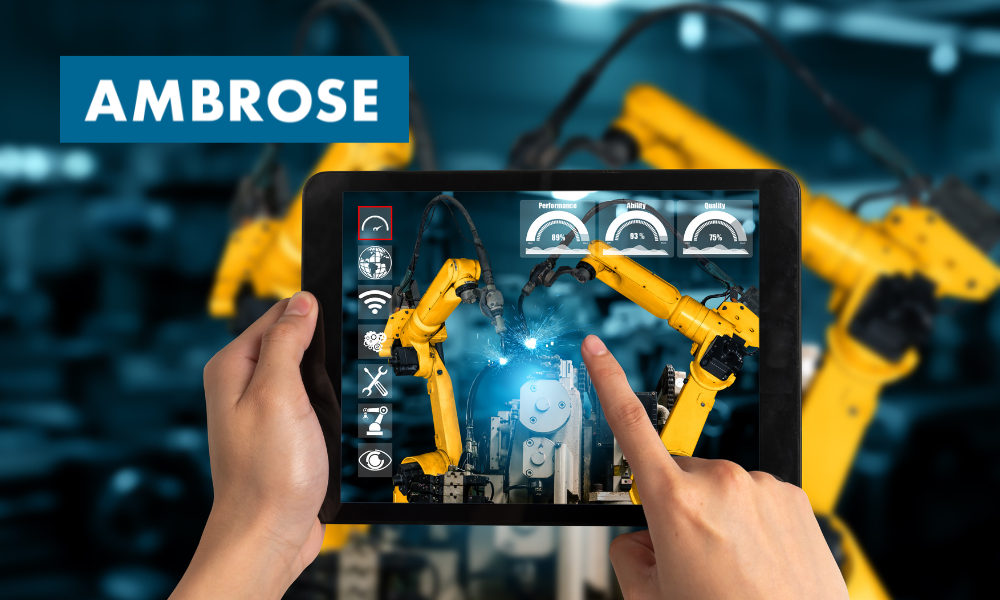5 Ways Manufacturing Robotics Can Benefit Your Company
While your consumers across America and beyond expect a consistent supply of high-quality products listed at the right price, your team is responsible for delivering on these expectations – all the while also maintaining facility safety, optimizing production, keeping up with competitors and so much more. As such, you need streamlined, innovative solutions to keep your manufacturing company competitive, efficient and profitable.
With technology advancing daily, the game-changer of robotic automation only continues to grow within the manufacturing sector. By integrating manufacturing robotics, your company can increase productivity and achieve sustainable bottom-line success with the help of artificial intelligence. Process automation also empowers your company to optimize complex production processes, drive down operational costs and elevate overall efficiency to unprecedented levels. This paradigm shift in manufacturing processes has proven to be a cornerstone of success for forward-thinking companies striving for efficiency, scalability and market leadership. Read more about the many benefits of manufacturing robotics in our blog below.

Robots embody unwavering precision in executing tasks, leaving minimal room for errors or defects. Automation mitigates risk to consumers and manufacturers by making precision in repetition a reality – from material handling and palletizing to assembly line optimization and consistent robotic arm configurations. In the food and beverage industry, this consistency and repeatability is key as human workers increase the risk of introducing contaminants into the production and handling processes. Collaborative robots (cobots) lessen the probability of discarding or recalling food items due to contamination through their dexterity and precision. Manufacturing robotics ensures consistency in product quality, minimizing inefficiency and waste by reducing defective products.
Safeguarding your workforce is forever paramount, especially in the manufacturing industry. By entrusting repetitive, strenuous or hazardous tasks to industrial robots, the risk of workplace accidents and injuries significantly diminishes. Robot applications have been proven to heavily reduce the probability of exposing workers to known risk factors on the factory floor, e.g., musculoskeletal disorders due to heavy lifting and performing repetitive tasks. Industrial robots are meticulously designed to function optimally within high-risk environments and manufacturing systems, culminating in an overall safer workplace for your entire team.
With robotics, tasks that would take several human-directed hours to complete can be executed swiftly and precisely at both high-speed and high-volume. Processes that previously relied on human workers can continue through lunches, breaks and unexpected employee sickness. Industrial robots work tirelessly and consistently at high velocities, leading to accelerated production cycles, shortened lead times and increased output. When demand is high, manufacturing robotics allows for a real-time increase in production output without increasing production time, equipment or number of workers.
While the initial investment in robotics technology may seem significant, it pales in comparison to the long-term savings it offers. The return on investment (ROI) becomes evident as enhanced efficiency via automated systems reduces operational expenses over time – including labor costs and downtime. With both a streamlined staff and more uptime to keep your production line rolling, your production process will benefit from a lack of unexpected absenteeism, delays and more.
Contrary to the misconception that robotics commonly replace jobs, they often free employees from physically taxing work and both monotonous and complex tasks. In addition, companies can even offer workers opportunities to upskill to occupy new positions, such as programming and managing the new technology and robotic systems that are now in play. Industrial automation also helps to maximize workers’ skills in areas where manual labor is more relevant or where creativity and innovation are nurtured. The result: happier employees in their new and more engaging roles.
Embark on a Journey of Robotic Automation for Manufacturing Excellence
As the manufacturing industry evolves, embracing manufacturing technology advancements like robotics is no longer an option — it’s a strategic imperative. Discover how robotic automation can uniquely benefit your company and explore tailored solutions by contacting our team at Ambrose for expert guidance and solutions. Seize this opportunity to redefine your company’s trajectory; the future of robotics is at hand.
